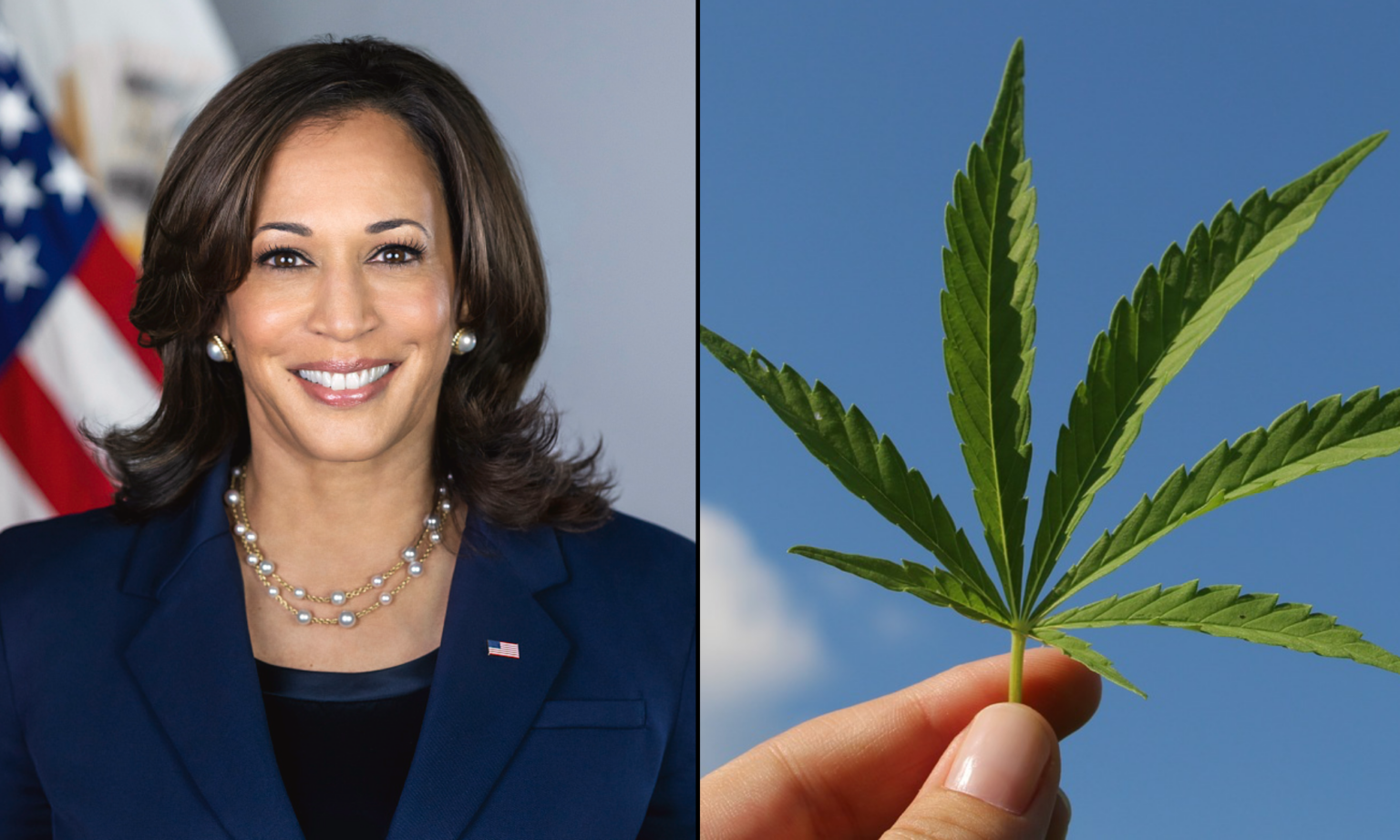Voters this November will likely see the first major party presidential candidate who supports marijuana legalization at the top of the ticket, with Vice President Kamala Harris now expected to receive the Democratic nomination after President Joe Biden made the historic announcement that he is exiting the race.
Unlike Biden, Harris backs a complete end to federal cannabis prohibition. She’s called for legalization as recently as March 2024, in a closed-door meeting with marijuana pardon recipients. And during her time in the Senate, Harris sponsored a comprehensive legalization bill in addition to other incremental cannabis reform measures.
But this wasn’t always her position. The current vice president has undergone a significant evolution on the issue, as she oversaw cannabis cases as a prosecutor and campaigned against a marijuana legalization ballot initiative in California while running for state attorney general. She was openly dismissive of the reform, at one point laughing off a reporter’s question about the potential policy change.
That’s no longer the case, however. Harris has framed legalization as a key criminal justice issue, calling prohibition a failed policy that has disproportionately impacted minority communities.
As vice president, Harris has repeatedly touted the administration’s moves to issue mass pardons to people who’ve committed federal cannabis possession offenses and direct a scheduling review that’s led the Justice Department to recommend reclassifying cannabis. She also privately called for broader reform.
Put simply, if she ultimately secures her party’s presidential nomination, Harris will be the most marijuana friendly major party presidential nominee in U.S. history.
Here’s a look at where Vice President Kamala Harris stands on cannabis:
Legislation And Policy Actions
Biden-Harris administration
Harris has made much of the administration’s cannabis clemency efforts, applauding the president’s mass pardon of thousands of people who’ve committed federal marijuana possession offenses.
She’s also embraced the scheduling review Biden directed in October 2022 that ultimately led the Justice Department to recommend moving cannabis from Schedule I to Schedule III of the Controlled Substances Act (CSA).
In March, Harris hosted a group of pardon recipients at the White House for a roundtable event promoting the clemency action. And she called the the Drug Enforcement Administration to follow through on rescheduling “as quickly as possible,” while privately reaffirming her belief that “we need to legalize marijuana.”
“This issue is stark when one considers the fact that on the schedule currently, marijuana is considered as dangerous as heroin,” she said at the time. “Marijuana is considered as dangerous as heroin and more dangerous than fentanyl. Which is absurd. Not to mention patently unfair.”
With respect to the pardons, as advocates have been quick to point out, there are also still an estimated 2,800 people currently in federal prison for marijuana convictions that aren’t limited to simple possession. Multiple groups, including immigrants and those who’ve been charged with selling marijuana, were excluded from the presidential pardon.
Symbolically, however, the announcement represented a paradigm shift in federal cannabis policy. And recognizing that the majority of cannabis convictions happen at the state level, the administration also took the opportunity to urge governors in state across the U.S. to follow Biden’s lead by using their own authorities to grant similar relief.
Under the Biden-Harris administration, the president also signed into law the first piece of standalone marijuana reform legislation that was designed to streamline cannabis research.
However, the administration has also faced criticism over other anti-cannabis policy actions, including multiple budget requests that proposed maintaining a ban that has long prevented Washington, D.C. from using its local tax dollars to implement a system of marijuana sales.
The Justice Department, meanwhile, has repeatedly defended in federal courts the ongoing ban on gun ownership by people who use cannabis, arguing that marijuana consumers pose a unique threat and comparing them to people with mental illnesses.
Also under the administration, U.S. Customs and Border Protection (CBP) has faced scrutiny for using resources to seize cannabis from state-legal businesses in New Mexico.
The White House has also come out against a House-passed proposal to prevent military branches from testing for marijuana for enlistment or commission as part of a large-scale defense bill, calling cannabis use a “military readiness and safety concern.”
However, the president signed an earlier version of the National Defense Authorization Act (NDAA) that contains provisions to fund clinical trials into the therapeutic potential of psychedelics for active duty military service members.
Early in 2021, meanwhile, the administration came under fire after it was reported that it had terminated or otherwise punished dozens of staffers who admitted to prior marijuana use as part of their background check process.
To read more click on Marijuana Moment







